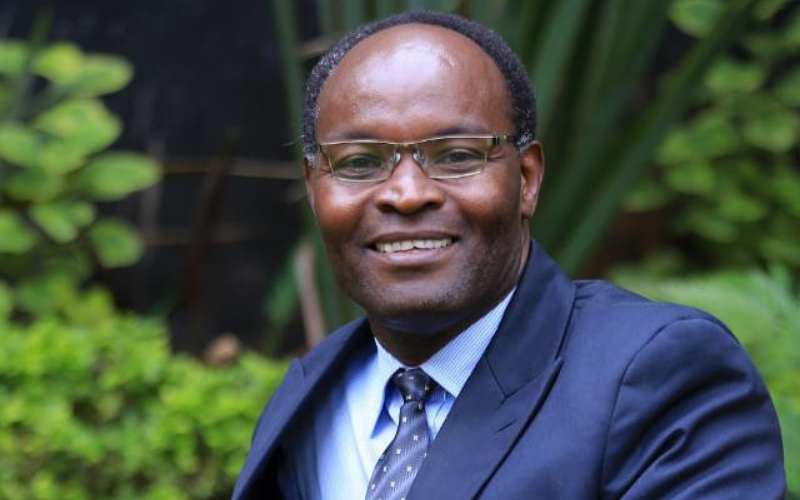If you listen to heartbreaking songs, you will keep thinking about heartbreaks… making it difficult to heal from that painful relationship, says Dr Geoffrey Wango, Counseling Psychologist
Music, that universal language, has a remarkable ability to soothe the soul and iron out emotional creases as Wangui wa Njeri found out while nursing a relationship breakup.
The 30-year-old mother found it hard opening up to someone and took refuge in the melodies and uplifting lyrics of gospel music which “was my solace whenever I felt lonely, sad, when overthinking and confused.”
“Whenever I felt lonely and depressed,” says Wangui, she explains, “I listened to songs like ‘Goodness of God’ by Bethel music or anything by Cece Winans.”
Wangui also found that different genres catered to different moods: country music for chores, Nicki Minaj for motivation, and hip-hop for relaxation. These genres improved her mental health, hastening her healing.
Beyond entertainment, music was a vital component in processing her emotions and finding inner peace. “Through music,” she says, “I was able to detach my feelings from the experience, gaining some sense of inner peace and healing.”

Then there is Samuel Ochieng, an advocate of the High Court of Kenya, who has been battling bipolar disorder for 24 years. It was in 2000 when he was diagnosed with bipolar disorder, a condition he says he was born with, but when he became psychotic, caused him to create a disturbance in Nairobi.
“I had just been attending a series of concerts where I was singing, and my mind could not handle all that stress, so I became manic and started preaching in town, thinking I was a prophet, and so I had to be literally tied down and taken to a psychiatric ward where I stayed for a month and a half,” he narrates.
Bipolar is a mental disorder associated with episodes of mood swings ranging from depressive lows to manic highs, while psychosis is a mental disorder characterized by a disconnection from reality, and schizophrenia is a disorder that affects a person’s ability to think, feel, or behave clearly.
Music is therapy for my mind as I usually get the high, happiness and elated mood
He says that he suffers from the first type of bipolar disorder, where one oscillates between mania and depression, and during the highs or lows, he turns to music to calm his mind.
He believes his creative mind is engaged, which helps alleviate symptoms such as depression.
“Music, to me, is therapy for my mind. When I am in the studio singing, composing a song, or when I am performing, I usually get the high, happiness, and elated mood,” he says.
He adds that he also listens to other musicians’ songs, especially R&B or any song that he can dance to and that he listens to music in the sitting room or in the bedroom, where he has installed music systems.
Sometimes, when there are episodes of lows and he cannot find music, he says he will be around friends who have become another pillar in his mental healing, as talking with friends is another form of therapy.
He also plays chess because he says he has to look for other avenues to vent and elevate his spirit, although he believes music takes up almost 80 per cent of the ways he can elevate his spirit, urging other people with mental health issues to choose music they can resonate with, as he believes music will help calm their nerves.

This therapeutic effect of music is supported by Counselling Psychologist Dr Geoffrey Wango who argues that the rhythm of music calms the nerves by influencing the cognitive functions of the brain.
The rhythm, pitch, and tone work together to reduce stress, whether through singing or listening. Music has a “perception effect,” impacting behaviour, comprehension, memory, attention, and performance. It even affects our senses of touch, sight, and smell, contributing to a feeling of well-being.
Dr Wango points out how ancient societies used specific music for various events, triggering emotional responses while the biblical David calmed the troubled mind of King Saul with his harp.
Music, adds Dr Wango, can activate memories in older individuals, improve physical posture, relax muscles, and even alleviate snoring.
He suggests calming background music in stressful work environments to promote focus and reduce anxiety while cautioning against the potential negative impact of certain genres with sad or heartbreaking themes.
“Be careful with the songs that you choose to listen to,” he advises. “The music you listen to can also be toxic, for example, if you listen to heartbreaking songs, you will keep thinking about heartbreaks and it will lead you to more heartbreaks, making it difficult to heal from that painful relationship.”
Music relieves stress, boosts confidence, enhances fine motor skills in children
Dr Wango also notes the importance of music during pregnancy as an unborn child connects its emotional well-being with the mother’s singing.

Child Psychologist Jacque Gathu explains that music not only relieves stress, but also fosters a sense of accomplishment, boosts confidence, improves attention span and memory, and enhances fine motor skills in children who play instruments.
A 2011 study by researchers from McGill University in Canada indicates that music significantly aids health recovery. Engaging with music can reduce stress and anxiety, enhance mood, and improve overall well-being. Studies have shown that listening to music increases dopamine production, a neurotransmitter associated with pleasure and reward, thereby potentially alleviating symptoms of depression.
Good music, she says, triggers the release of dopamine, the “feel-good” hormone, creating a similar sensation to enjoying a favourite food or experiencing a good laugh.
Like “that awesome feeling you get after eating your favourite dose of ice cream, chocolate or food. Or when you have a good laugh or workout,” says Gathu, adding that the brain stores music enabling us to recall songs without remembering the lyrics. “Or when you have a playlist, once a song plays you automatically know the next song that will follow? it is because that is stored in your memory.”
Gathu also highlights the use of guided imagery with music as a self-care tool for relaxation “where one has an escape zone by playing some music and it puts you into a relaxation mode.”
Dr Jeilan Mohamed is a cardiologist, musician and DJ. He treats heart attacks by unblocking arteries using a tiny incision in the wrist, and notes that both the heart and music are connected as they’re driven by rhythm, flow and feeling.
Music can influence the heart rate, either speeding it up or slowing it down, which is why many find healing through its influence.
Dr Mohammed illustrates the impact of rhythm in daily life, from recognizing one’s heartbeat to coordinating exercise with music. “It is like when you are going for a jog,” he says, “and you have a playlist and every step that you take is in beat with the actual song playing,” adding that rhythm is important in day-to-day life.
He emphasizes the importance of expressing emotions, whether through sad songs or uplifting melodies.
I’m Ready by Tevin Campell is surprisingly sad, but people think it is a happy song
“When we get used to hearing certain music,” he explains, “we tend to associate it with certain emotions and sense of wellbeing. For example, I’m Ready by Tevin Campell is surprisingly sad, but people think it is a happy song, so there are songs that make you sad and others that make you feel good.”
Additionally, music therapy has been found to reduce pain levels and even accelerate recovery from illness or injury. Furthermore, music’s role in promoting physical health is evident in pain management and its potential for improving physical rehabilitation outcomes.
Studies by scientists have also found that listening to music helps release endorphins, hormones associated with pleasure and reduce pain, which further reduces stress levels and may aid in the healing process.

Dr Mohamed believes music can heal by offering distraction, empathy, or a means of expressing inner struggles.
“It is healing to feel sad and express that emotion but it also healing to get some positive energy through songs with an upbeat tempo or those that are spiritually uplifting,” explains Dr Mohammed, who as a songwriter focuses on conveying truth and meaning through music, while as a deejay, he adapts to the crowd’s preferences while exploring new ways to present familiar songs.
“Rap forces you to think in a particular way,” he says about his appreciation for Hamilton the Musical. He concludes that music can heal, and each resonates with their own unique musical preferences.
In 2022, the World Health Organization estimated that in 2019, one in every eight people across the world, equating to 970 million, lived with a mental disorder, with anxiety and depressive disorders the most common.
In a survey conducted by The Lancet in 2019 in Kenya, mental disorders were the second leading cause of disability among young people aged 10–24, with the numbers higher in males than in females aged 10–14.
A report by Mental Health Statistics shows that in 2017, women were more likely to experience depression and post-traumatic disorder than males, although a recent survey conducted on Spotify and shared on social media on Valentine’s Day, 2024 revealed that more males had streamed heartbreak songs (107 per cent) than females (105 per cent), besides more heartbreak songs having been streamed since 2022 (189 per cent).
According to Dr Wango, this is mostly because women who have had relationship problems or heartbreaks tend to look for their friends and share their issues, unlike men who prefer to wallow in their bruised ego.
“These women will eat ice cream or coffee with friends and discuss and they are not afraid of talking it out, but the men will just wallow in their sadness and let the music say what they want to say, that is why more men will listen to breakup songs than women,” he explains.






















